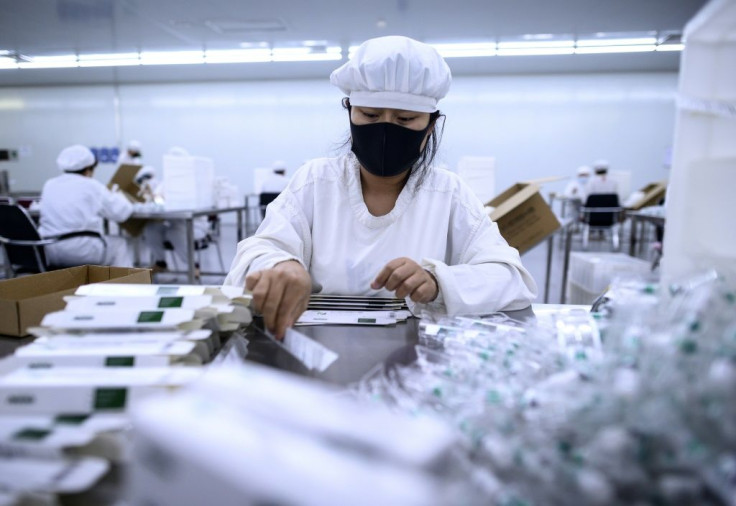Coronavirus Vaccine News: French, US Biotech Companies Expand Partnership, Will Evaluate COVID-19 Candidates
KEY POINTS
- Sanofi signed the deal with US biotech firm Translate Bio to develop potential vaccines using mRNA technology developed by Translate Bio
- Sanofi hopes the potential vaccines will be ready for trials by the end of 2020 and be approved by the second half of 2021
- GlaxoSmithKline Plc is also working with Sanofi on another coronavirus vaccine the companies hope will be approved in early 2021
French pharmaceutical company Sanofi said Tuesday that it signed a new deal with U.S. biotech firm Translate Bio, reportedly worth up to $2 billion, to jointly develop several potential coronavirus vaccines. It’s the second deal of note to be struck by Sanofi as companies and governments race to produce a working vaccine to address the global pandemic.
Sanofi said the potential vaccines would be created using messenger ribonucleic acid, or mRNA, technology developed by Translate Bio.
Using the mRNA strands, the potential vaccines would instruct the recipient's cells to produce one of the coronavirus' key proteins. The idea is this would prompt the cells to develop an immune response to the protein and effectively vaccinate someone from coronavirus.
As part of the deal, Sanofi will pay $425 million upfront to acquire shares in Translate Bio and gain a 7% stake in the company. Sanofi would then pay another $1.9 billion, plus royalties, if Translate Bio meets its goals.
Sanofi said it hopes the mRNA vaccines will be ready for clinical trials by the end of 2020. If all trials go well, it said the vaccines should be approved for use by the second half of 2021.
However, Sanofi is also keeping its fingers crossed on a vaccine coming from English pharmaceutical company GlaxoSmithKline Plc.
Sanofi and Glaxo announced their partnership in April to jointly develop a potential coronavirus vaccine as part of Sanofi’s efforts to play “catch-up” to companies like AstraZeneca already developing vaccines. The vaccines would implement a protein antigen Sanofi developed with an adjuvant agent from Glaxo to help strengthen the recipient’s immune system.
“As the world faces this unprecedented global health crisis, it is clear that no one company can go it alone,” Sanofi CEO Paul Hudson said in a press release. “That is why Sanofi is continuing to complement its expertise and resources with our peers, such as GSK, with the goal to create and supply sufficient quantities of vaccines that will help stop this virus.”
Sanofi said it moved up trials to begin in September and believes the vaccine could gain regulatory approval in early 2021. If it does, Sanofi will be able to produce around 1 billion doses a year of the vaccine.

© Copyright IBTimes 2024. All rights reserved.




















